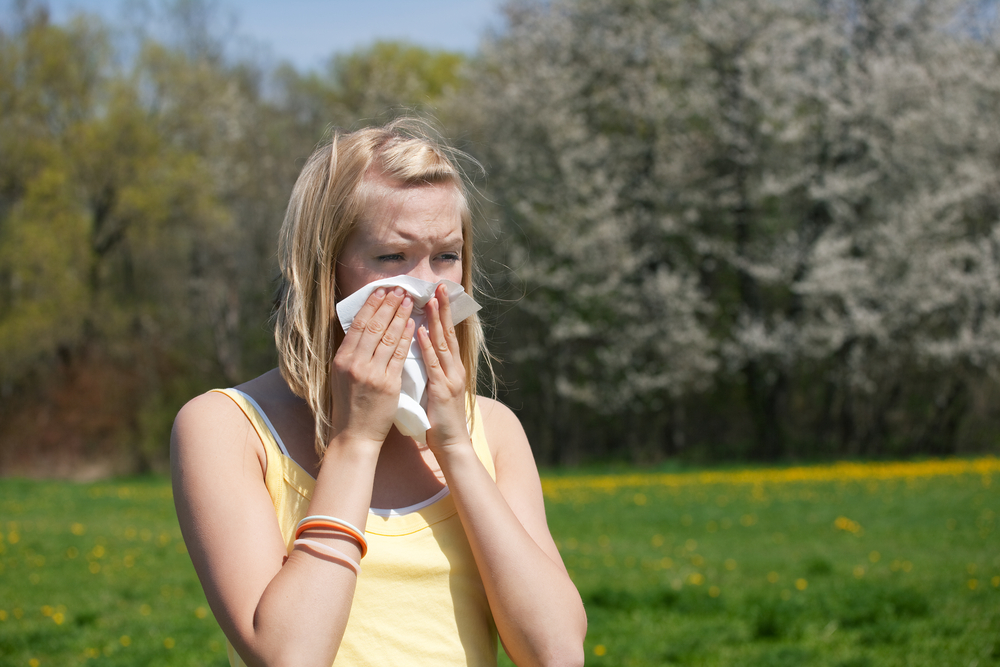
Running with hay fever can make routine training very challenging for athletes including runners and cyclists. Given the extent of individual allergic symptoms, it can be a real problem for some runners.
Hay fever is a type of allergic reaction caused by the response of the body to the presence of pollen in the air. The allergen triggers inflammation on the inside of the nose and may even spread to the sinuses, eyes and throat. Athletes running with hay fever will not only experience these uncomfortable symptoms but the same can also affect their performance. Although running with hay fever is not harmful, it can be very tough.
How can running with hay fever affect an athlete’s performance?
The biggest problem for runners who suffer from hay fever is that their training involves breathing deeply, inhaling more air and subsequently, inhaling more pollen as well. Since a lot of runners breathe through their mouth as well as their nose, they need to be cautious in managing their exposure to pollen.
Hay fever has the potential to weaken the nasal flow significantly, which in turns impairs breathing and can affect an athlete’s cardiovascular performance. When these symptoms create a lack of concentration, the athlete may also feel fatigued because their immune system now needs to work overtime.
With hay fever symptoms, an individual will find that they have to sneeze more frequently which can also upset their running pace. As such, sneezing repeatedly during a race or marathon will also impact the athlete’s time and could well destroy a sprinter’s race.
What should be done if allergy symptoms affect training?
Track the pollen count:
Allergens that trigger hay fever do literally get up your nose. So, typically the allergy symptoms associated with hay fever will feel intensified on days with a higher pollen count. Individuals who do have this issue should ideally pay attention to pollen counts and keep track of when their symptoms start to aggravate. A possible solution is to not run on days when the pollen count is above their personal tolerance level.
Also, on days when they may be feeling tired or rundown, runners should avoid running outdoors as an impaired immune system will only react more sensitively to the allergens. Another consideration is to avoid running on windy days since the pollen will likely be more spread out through the air. Rain, on the other hand, will dampen the pollen so training after rain is a good time to run.
On most days, the highest pollen counts will be early in the morning as well as in late afternoon, so it is a good idea to avoid training at these peak hours and time the runs around it.
Choose your running trails wisely:
Just as it is important to keep track of high pollen count days, it is equally important to choose a suitable trail to minimize exposure to pollen. Where possible, runners should keep to open, short grass areas and tracks so that allergens are not stirred up as they run. It also works to run in urban environments where large areas of vegetation are to a minimal. However, in urban locations, air pollution near busy town centres may be higher so find a spot that is away from centrally located areas.
Relieve itchy eyes:
Likewise, if you suffer from itchy, watery eyes during allergy season, then one way to go is to wear wraparound sunglasses while running outside. It has also been suggested that runners can use eye drops an hour or so prior to running to alleviate the symptoms of hay fever.
Use an inhaler:
For runners who have asthma, a recommendation is to use their inhaler before heading out. It is also recommended to carry the inhaler with them and make sure that they warm up slowly instead of jumping headlong into the run.
If runners develop asthma symptoms during hay fever season, they may be prescribed an inhaler. However, if they already suffer from asthma, their symptoms may become more pronounced in hay fever season. To run outside in these conditions, runners may need to increase the dose of their usual inhalers or other treatments.
Vaseline- anyone?
To run outdoors during allergy season, one recommendation suggests smearing petroleum jelly across the nostrils so that pollen grains may be trapped and are not able to reach the inner lining of the nose.
Bring out the allergy medications:
To alleviate the symptoms of hay fever, it is best to take allergy medications regularly. Medications like antihistamines can be taken before going out for a run so that exposure to allergens will minimize the allergic reaction. Antihistamine medication is available as tablets, nasal sprays or syrups and can help control, itching, sneezing and a runny nose.
Shower after the run:
Pollen is sticky and will stick to everything including your skin, clothing, and hair. Therefore, it is a helpful practice to shower and wash your hair after a run to remove any pollen from it. Rinsing off the pollen can actually provide relief before symptoms start to aggravate since allergic symptoms do not usually occur until about an hour after coming in contact with pollen. If you take all the precautions needed before going for a run outside and then finish it off with a shower right afterward, you may not even experience the symptoms.
How do you manage your training or competition during hay fever season? Share your tips in the comments below! 🙂